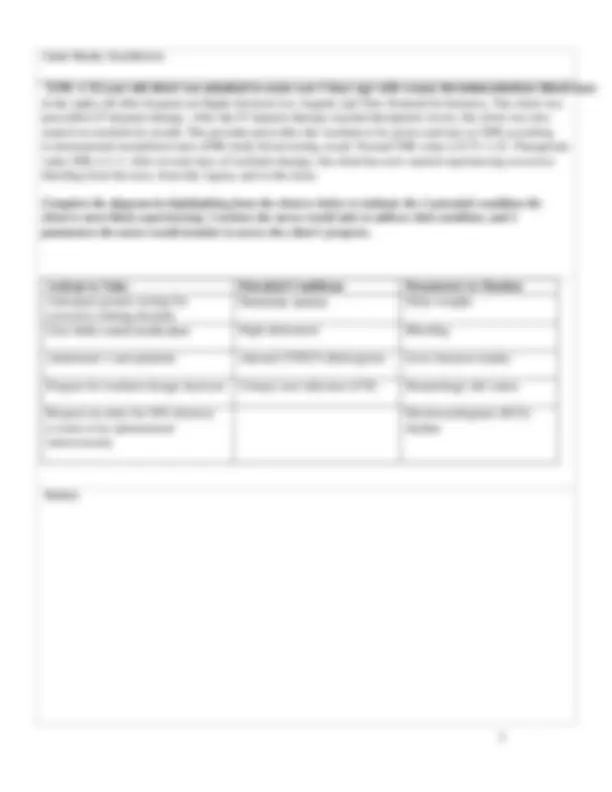




Study with the several resources on Docsity

Earn points by helping other students or get them with a premium plan


Prepare for your exams
Study with the several resources on Docsity

Earn points to download
Earn points by helping other students or get them with a premium plan
Community
Ask the community for help and clear up your study doubts
Discover the best universities in your country according to Docsity users
Free resources
Download our free guides on studying techniques, anxiety management strategies, and thesis advice from Docsity tutors
Study material for NUR3251 pharmacology 2 for exam 1 material to help prepare for the exam
Typology: Exercises
1 / 4

This page cannot be seen from the preview
Don't miss anything!



Understand and define the basic terms related to genetics and drug therapy. (Key Terms Ch. 8) Briefly discuss the major concepts of genetics as an evolving segment of health care, such as principles of genetic inheritance; deoxyribonucleic acid (DNA), ribonucleic acid (RNA), and their functioning; the relationship of DNA to protein synthesis; and the importance of amino acids. Describe the basis of the Human Genome Project (HGP) and its impact on the role of genetics in health care. Discuss the different gene therapies currently available. Differentiate between direct and indirect forms of gene therapy. Identify the regulatory and ethical issues related to gene therapy as related to nursing and health care professionals. Briefly discuss pharmacogenomics and pharmacogenetics. Discuss the evolving role of professional nurses as related to gene therapy.
Case Study Questions A patient has an existing disorder that has occurred as a result of a dominant inherited disease. The patient asks the nurse to explain how genetics is involved in drug therapy and its relationship to gene therapy. What is gene therapy? The patient asks how many disorders are treated using this strategy. How will the nurse respond? The patient states that he read that viruses are used in gene therapy. The patient asks how a virus can be involved in treating illness. What is the nurse’s best response?